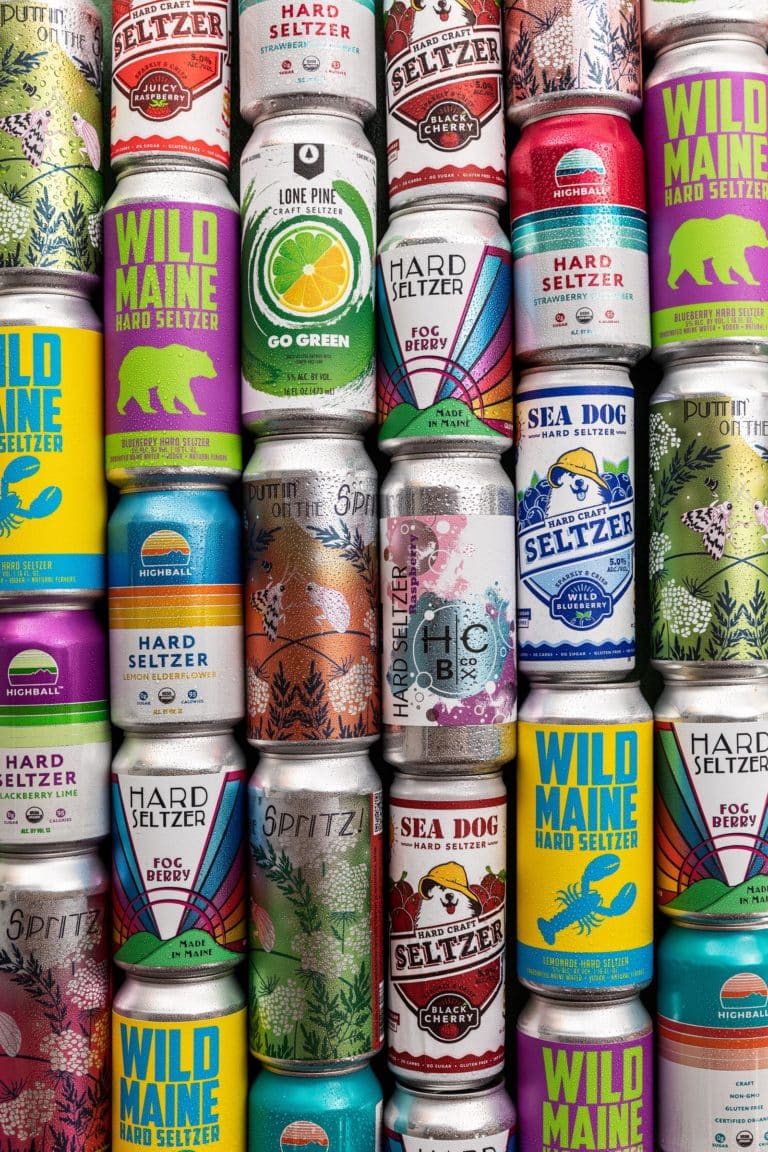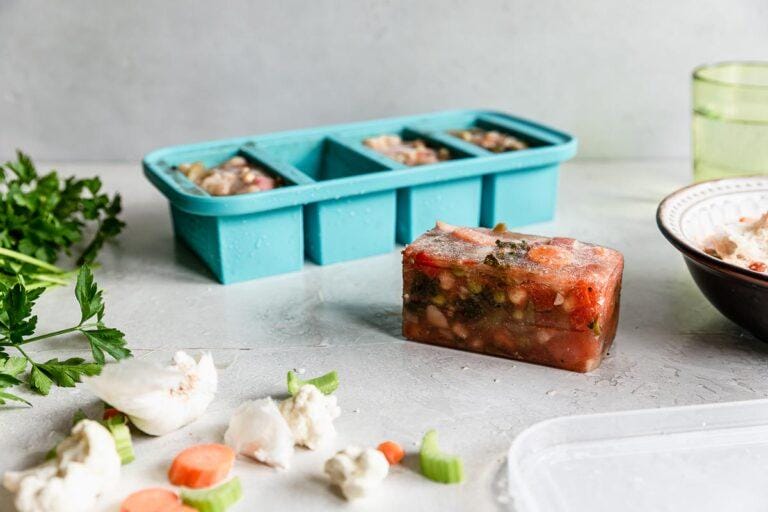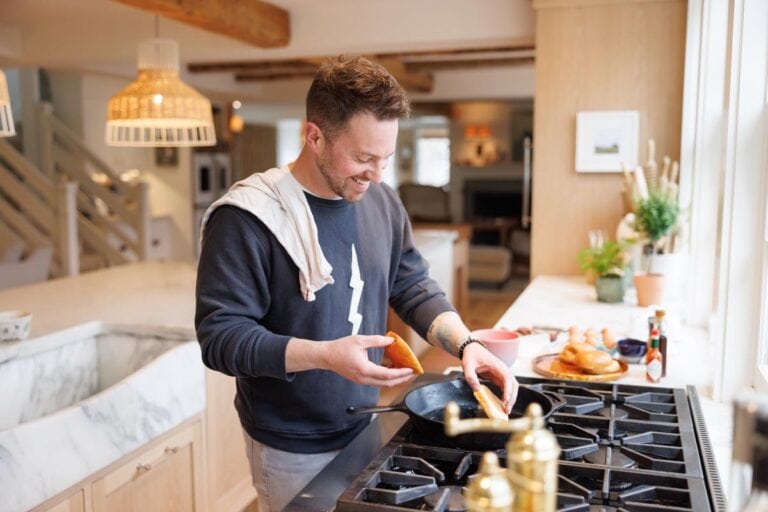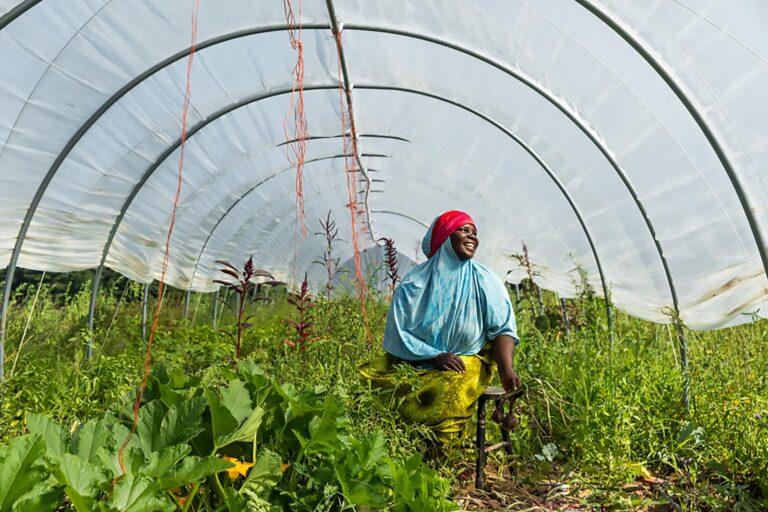If you are familiar with the gastronomic mecca that is Portland, Maine, then you know the café that goes by the name LB Kitchen. This beloved local gem is where sustainable and functional foods reign supreme and where those who have dietary sensitivities and allergies can partake in an innovative and flavorful menu. Nestled on Congress Street in the heart of Portland’s East End, LB Kitchen has carved a niche as a beacon of health-conscious, community-driven dining.
The café’s journey began when founders Bryna Gootkind and Lee Farrington met over a decade ago, each bringing a unique background to the table—Gootkind from a career in the music industry and later in consumer packaged goods, and Farrington from the restaurant industry. Their shared passion for nutritious, sustainable, and local food sparked the idea of creating a space that not only served delicious meals, but also fostered a strong community ethos where anyone would feel welcome.
Initially opening in a modest space, LB Kitchen quickly gained traction among locals for its fresh, plant-forward dishes, including vegan and gluten-free options. However, it was their move to a larger location that truly allowed LB Kitchen to flourish. With expanded seating, a vibrant outdoor patio for the warmer season, and even a market offering carefully curated products, LB Kitchen became more than just a café—it became a hub where food and community intersected seamlessly.
As both a mother to a child with extensive dietary restrictions and a self-proclaimed foodie, I’ll say—with some bias—that LB Kitchen’s menu is a testament to creativity and inclusivity. Emphasizing whole foods and locally sourced ingredients, the menu boasts a variety of options that are not only nutritious but cater to a range of dietary needs and preferences. From vibrant greens and protein-packed bowls to inventive gluten-free and mostly vegan baked goods like cookies, bars, and cakes, each item is crafted with thought and a deep understanding of flavor dynamics. Lobster rolls are ubiquitous here in the Vacationland State, but LB Kitchen offers unique alternatives. Where else can you find vegan, gluten-free Golden Milk Pancakes with Lakadong turmeric and Makhir ginger? Or a gluten-free and vegan breakfast sandwich complete with house-made cashew cheese and cured carrot bacon?
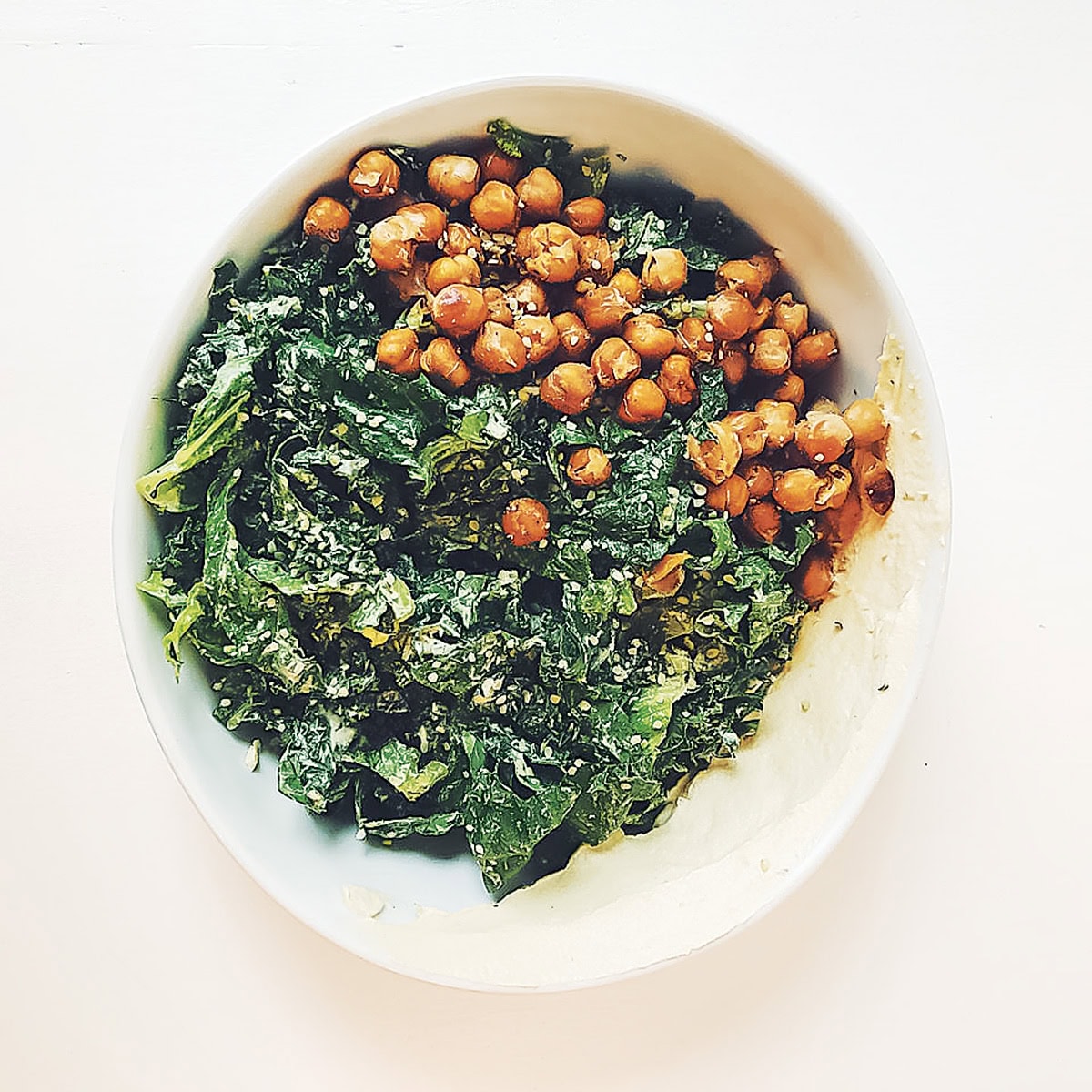
LB Kitchen’s dedication to accommodating dietary needs and food allergies sets the establishment apart. Gootkind highlights the meticulous approach that she and Farrington take when training staff on handling dietary restrictions and ensuring transparency in ingredient sourcing. This commitment stems from the personal experiences of their patrons, their goal of filling the market need for such an accessible menu, and a desire to provide safe, enjoyable dining experiences for their supportive and growing community. “A close friend and customer of ours unfortunately contracted Lyme disease a few years ago,” Gootkind shares. “She would send her friends to get our food and lots and lots of our frozen bone broth, which she swears helped nurture her back to life! We get so many stories like this from customers, and we love to hear each and every one of them. It helps affirm we are doing what we love and doing it right.”
Beyond LB Kitchen’s culinary offerings, Gootkind expands on how she and Farrington have cultivated the café’s loyal following through community-focused initiatives. From hosting local events like trivia night, to supporting the community through an original menu item (The Community Bowl, which gives $1 back to Maine Needs for every bowl purchased), to bringing in niche and functional brands for their market section, LB Kitchen is a gathering place where relationships thrive first and foremost. But what I love most about Gootkind’s and Farrington’s philosophy of giving back and supporting local talent is how it extends to their staff, whom they view as integral to a positive dining experience. The owners empower the bakers and chefs to explore ingredients and flavors and to present new items for the menu and bakery case. “We give a lot of creative freedom to our team at this point [after going through COVID], especially with items in the pastry department, which is a perfect example where we have a lot of variety and have it continue to change and be exciting,” says Gootkind.
As LB Kitchen continues to evolve, its founders remain committed to innovation and sustainability. “All of our to-go-ware is compostable!” says Gootkind proudly. “Additionally, we compost all of our food scraps, waste, and byproducts and are proud to say we produce very minimal food waste. We also go through a gross amount of straws, as you can imagine. We source our straws from a company called Loliware—an incredibly cool company using AI-driven seaweed biomaterials that are designed to disappear.”
LB Kitchen is a hospitality institution that exemplifies what it means to curate and foster a sustainable community—one that aligns with the core values of its locality and listens to what diners want and need. As an establishment, LB Kitchen continues to learn about its customers’ dietary restrictions, to be vocal about seeking new and functional market products that people can feel good about consuming, and to strive for neighborhood connection. Likewise, it’s not a secret that Portlanders continue to seek out authentic dining experiences that align with their values. LB Kitchen stands ready to welcome them with open arms and a menu that never disappoints.
Editor’s Note: Since the writing of this story, a significant piece of LB Kitchen’s community-driven response during the COVID-19 pandemic has come to our attention. In addition to their dedication to inclusive, functional foods, LB Kitchen provided free meals to hospital workers at Maine Medical Center during the most challenging times of the pandemic. This effort, part of Portland’s wider grassroots initiative to support frontline workers, underscores LB Kitchen’s commitment to being a true neighbor in the community. We deeply appreciate our readers for bringing this important contribution to light and regret its initial omission. We remain grateful for the opportunity to continue telling the full story of how Maine’s food establishments have supported their communities in times of need.







